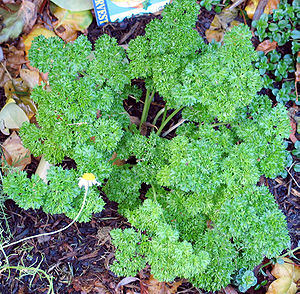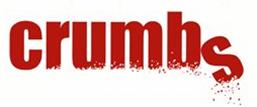Image: Feather duster and cleaners by stevepb.
Rabbi Tarfon taught: It is not your responsibility to finish the work, but you are not free to desist from it either. [Pirkei Avot 2:16]
It is very tempting to take an “all or nothing” approach to mitzvot. Some of us are overachievers, and we want an “A” in everything we do. Some of us are worried about the opinions of others. Some worry that if a commandment is not fulfilled properly, there was no point in bothering. But to any beginner in Jewish observance, my first word of advice about almost everything is: Start Small.
The journey of the Exodus began in Egypt. The Hebrews could not keep the commandments; they had not yet received the commandments. Anyway, they were slaves: they were not free to keep the commandments.
So if this is your first time cleaning for Passover, do not think, “I must do all of this perfectly,” because you are in Egypt. You are only beginning the journey! If this is your first time cleaning for Passover, think: What can I reasonably do this year to observe Passover in my home? Here are some ideas for beginning your journey to Passover, one step at a time. Even if you do only the first step, or the first two this year you will have made a good beginning.
If, on the other hand, you are looking for official standards on how to prepare a proper kosher-for-Passover home, and you are already an old hand at this, you will be much better served by the Pesah Guide published by the Rabbinical Assembly (Conservative Movement.) This post is for those who are new to the mitzvah of preparing for Passover.
1. LEARN ABOUT CHOMETZ. Chometz / Chametz / Hametz (all spellings are transliterations, all are the same thing) is a product that is made from one of five types of grain (wheat, rye, spelt, oats, or barley) that have been combined with water and left to stand raw for longer than eighteen minutes. Chometz is sometimes defined as “leavened products” which is confusing, since that makes modern people think of leavening agents like baking powder and yeast. But no, chometz is basically wet grain, or grain that may have been wet at one time.
In short, anything in your home that contains one of those grains (wheat, rye, spelt, oats, barley) and may have had any moisture get to it (on purpose or by accident, no matter) is chometz. Ideally, a Jew will find and get rid of all the chometz in the places under his or her control before Passover begins.
You can learn more about chometz and Passover observance in an article at My Jewish Learning. There you will also learn that Ashkenazic Jews also dispose of rice, millet, corn and legumes like beans and soy [kitniyot] because those things often behave like the forbidden grains.
If this is all you can do this year, that’s OK.
2. CHECK YOUR CHOMETZ. The Hebrew name of the process of looking for chometz is bedikat chometz, literally “checking for chometz.” The first step is to figure out where the chometz is. You can’t get rid of it if you don’t take stock of it, right?
Go into the kitchen, open the cabinets, and make note of all the chometz products you normally own and use. There may be bread, and flour, and mixes, and cereals. There may also be processed foods that contain grain products. Notice what they are, how many they are, how basic to your cooking and consumption these products are. Notice, also, all the beer and spirits and other grain-based fermented products you may have: those, too, are chometz. Then close the cabinets, and move on.
Go into the rest of your home, and think about all the places that crumbs can hide: sofa cushions, carpets, pockets, shoes.
Contemplate the ubiquity of chometz: It’s really everywhere.
If this is all you can do this year, that’s OK.
3. GET RID OF BIG CHOMETZ. I said “start small” but at this stage of the journey, we’ll just get rid of what I call “big chometz.” Set aside all the chometz in your kitchen and say, “what can my household consume before Passover?” All the rest of the chometz will need to go for you to complete this third step. Eat it up, give it away, or throw it out: those are the chometz choices between Purim and Passover. Locate a donation dropoff for your local food bank, and use it.
If you have gotten to this stage, you will also need to think about “What will my household eat during Passover?” This does not mean that you must buy many specialized products for Passover. Maybe you will choose to buy matzah, and otherwise stick to unprocessed non-grain foods for the week of Passover: salads, fruit, meat, fish, etc. If you live with other people, you need to include them in the menu-planning for Passover week. The average child (or adult, for that matter) will not feel loved if you simply announce that we are out of Cheerios and will be out of Cheerios until next week, tough luck! If you have animals, you will need to plan for them as well. However, keep in mind that an animal that eats grain needs proper nourishment: consult your rabbi if you have questions about how to meet the needs of pets during the holiday.
If this is all you can do this year, that’s OK.
4. DISHES AND UTENSILS If you are even more serious about keeping a kosher for Passover home, you will want to seal up or pack up all your usual utensils and dishes, and use either “Passover dishes” that you keep boxed up the rest of the year or use disposables. This is more or less expensive depending on how you go about it. My everyday Passover dishes are not particularly nice (they were on sale at Target) and I only have a few of them, since other than the seder, I don’t entertain during Pesach. However, I only look at them for one week a year, so I wasn’t picky.
Another possibility is to buy a package of paper plates. This is less wasteful if there is some way to compost them instead of putting them in the landfill after use. During Passover, I use more disposable products than at other times of the year, but I try to use them responsibly.
If this is all you do this year, it is more than OK.
5. FIND AND DESTROY HIDDEN CHOMETZ. This brings us to something that looks suspiciously like “spring cleaning.” Remember the chometz you thought about back at #1: the crumbs in the carpet, your pockets, the car, the back of cabinets? At this level of cleaning for Passover, you will get rid of as many of those as you can. Take a moment to think a grateful thought for all the clever inventors of the vacuum cleaner. Most observant Jews will get their carpets cleaned in the week before Passover. Wipe surfaces down. Dust everywhere. Vacuum out the shoes in the closets.
If this is all you do this year, it is more than OK.
6. RECONSIDER “CHOMETZ“ There are Jews who observe Passover by refraining from eating chometz, and who may or may not be meticulous about cleaning out their houses, but who take other understandings of chometz very seriously. To learn more, consider these articles on the web:
7. REMEMBER, LIFE, LIKE EXODUS, IS A JOURNEY. In the beginning, start small. Don’t tear your home up and then collapse in despair. Pay attention to the mitzvah that you are doing, to whatever degree you can perform it. Remember that at different stages of life, our abilities are different: a beginner, starting out, will not approach Passover in the same way that a person who has grown up in a kosher observant household will approach it. In a year with illness, or money troubles, or other challenges, our ability to observe the mitzvah will change.
Instead of judging ourselves for what we cannot do, and comparing to others who “do more,” we accomplish the most when we approach the task with
kavanah [intention] and do what we can to the best of our ability. Remember the words of
Rabbi Tarfon that opened this post:
It is not your responsibility to finish the work, but you are not free to desist from it either._____
Like this:
Like Loading...









